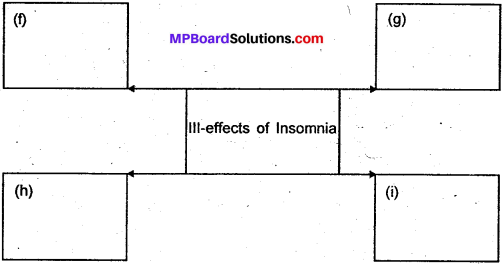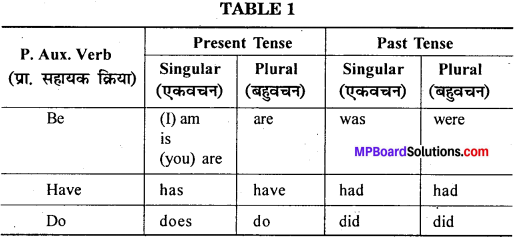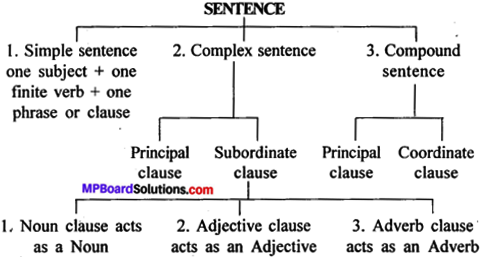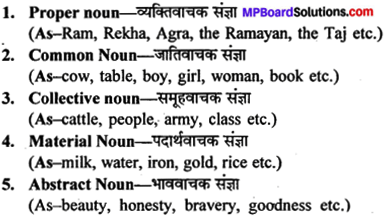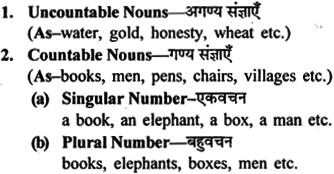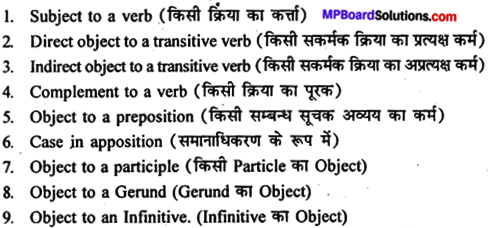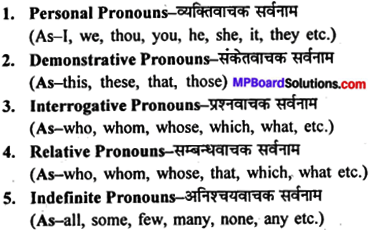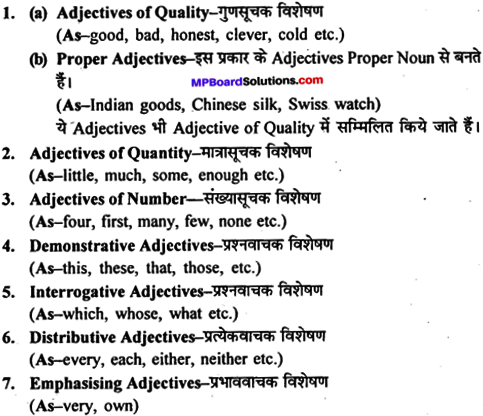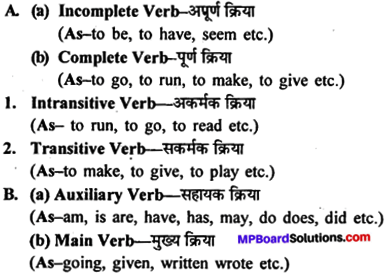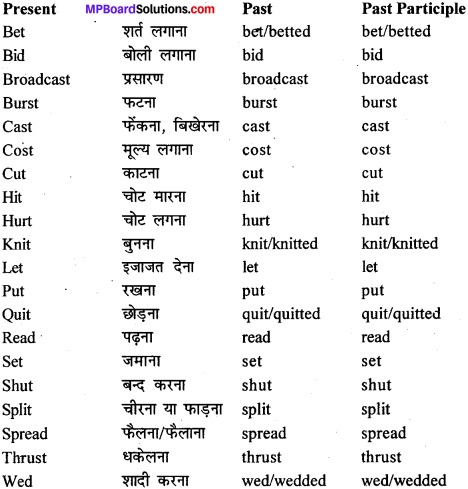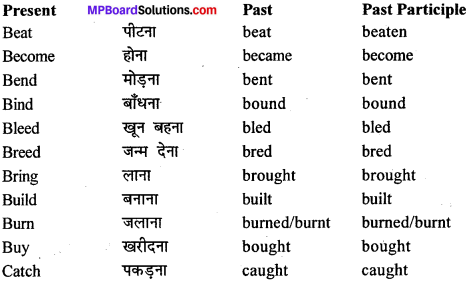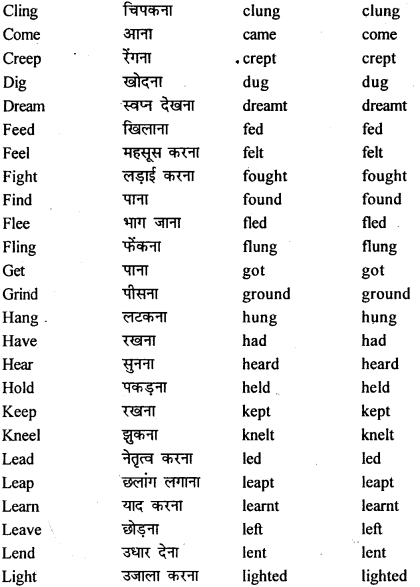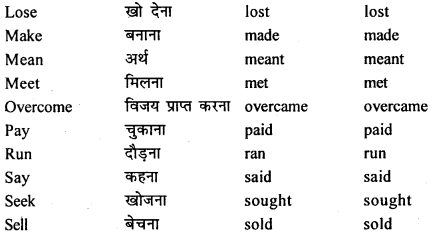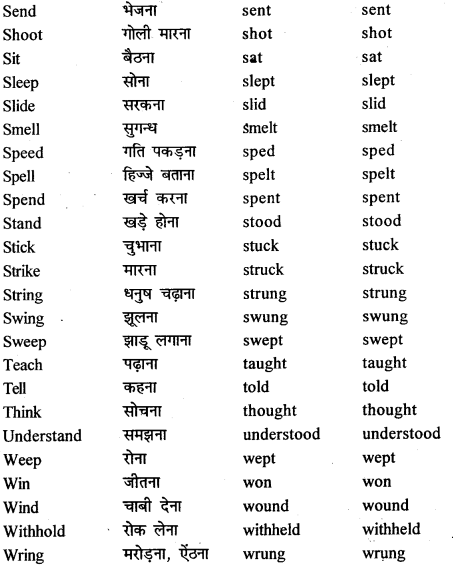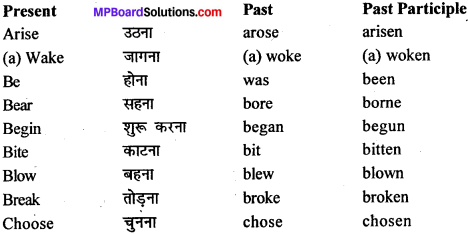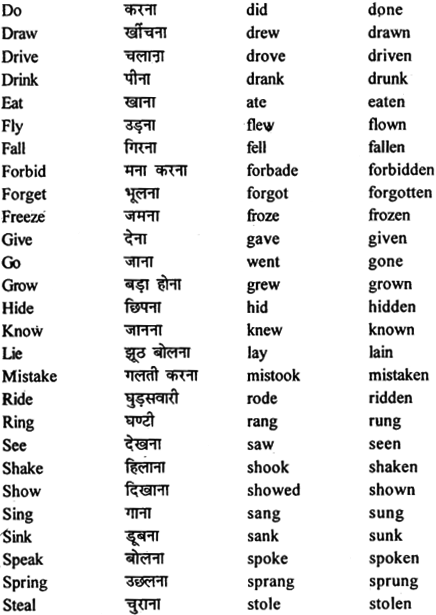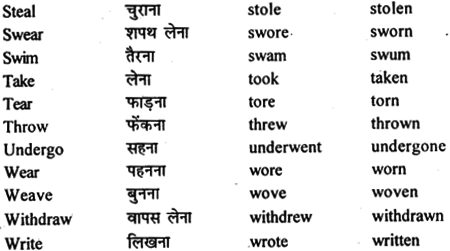MP Board Solutions for Class 9 Special English Grammar Type V Questions and Answers aids you to prepare all topics in it effectively. You need not worry about accuracy of Madhya Pradesh State Board Solutions for Class 9 English Composition: Visual Stimulus as they are given adhering to latest exam pattern and syllabus guidelines. You Can Download MP Board Class 9 English Solutions Questions and Answers, Notes, Summary, Guide pdf on is page. Enhance your subject knowledge by preparing from Chapterwise MP Board Solutions for Class 9 English and clarify your doubts on corresponding topics.
MP Board Class 9th Special English Grammar Type V
Kick start your preparation by using our online resource Madhya Pradesh State Board Solutions for Class 9 Special English Grammar Type V. You can even download MP Board Solutions for Class 9 English free of cost rough direct links available on our page. Clear your queries and understand concept behind in a simple manner. Simply tap on concept you wish to prepare chapterwise and go rough it.
1. Read the dialogue given below, Un the basis of your reading, fill in the gaps with appropriate words or phrases. Do not add any new information. Write the answers in your answer sheet against the correct blank numbers. (5 marks)
Kali : You impertinent mortal! Nobody ever dared to laugh at me like this. Aren’t you terrified by my form?
Rama : Well, Devi you do look very magnificent and terrifying but I couldn’t help the sudden thought that struck my mind and that is why I laughed.
Kali : What was this thought?
Rama : We mortals have such a problem when we have a cold in just one nose. How do you manage with so many noses?
Kali (laughing herself) : That is indeed a funny thought. I bless you for your devotion and wit. Go to the Rajah and he will make you his court jester. That is how Rama became Tenali Rama, the jester at Raja Krishnadevaraya’s court. The Goddess
Kali was very offended by Rama’s behavior. She (a) …………………………. an impertinent mortal and said no one (b) …………………………. laugh at her before. She also (c) …………………………. Rama (d) …………………………. she was magnificent and terrifying but claimed (e) …………………………. amused him so much (f) …………………………. bursting into laughter, (g) …………………………. what thought it was. Rama (h) mortals with one nose had such a problem (i) …………………………. colds that (J) …………………………. what she did with many noses.
Answer:
(a) called Rama
(b) had ever dared to
(c) asked
(d) why he was not terrified though
(e) to know what had
(f) that had resulted in his
(g) Kali asked him
(h) told her that
(i) when they caught
(j) if she caught a cold.
2. Read the dialogue given below. On the basis of your reading, fill in the gaps with appropriate words or phrases. Do not add any new information. Write the correct answer on your answer sheet against the correct blank number. (5 marks)
One year later in court
Gopal : I am ready with my answers, Your Highness.
Nawab : Good! Now give me the answers. The exact figures.
Gopal : Figures? Figures weren’t part of the agreement. I have done exactly as you asked. Tire earth is as wide as the thread in the first seven carts here and as long as the thread in the next eight carts. There are just as many stars in the sky as there are hair on these five sheep that I have so carefully selected.
Naxrnb : Impossible ! I can’t measure that thread or count the hair on those sheep. Still you have kept your part of the bargain, so here is your reward.
Gopal said he was ready (a) …………………………. The Nawab (b) …………………………. satisfaction and (c) …………………………. the exact figures. At which Gopal expressed great surprise and asked which figures the Nawab was (d) …………………………. for, as far as he was aware (e) …………………………. no figures in the agreement. He (f) …………………………. exactly as he had been told. He (g) …………………………. the earth which was as wide as the thread in the first seven carts and as long as the thread in the next eight carts. He also (h) …………………………. that there were as many stars in the sky as (i) …………………………. hair on the five sheep he (j) …………………………. The Nawab had no choice but to reward Gopal as promised.
Answer:
(a) with his answers,
(b) was filled with
(c) asked for
(d) talking about
(e) there were
(f) had done
(g) had measured
(h) said
(i) there are
(j) had carefully selected.
3. Read the conversation given below and complete the paragraph. Write the answers in your answer sheet against the correct blank numbers. (5 marks)
Ray : I have invited four of my friends for dinner today.
Renu : Then I’ll invite my friends also.
Ray : That will be a good idea.
Renu : So, what should we have for dinner?
Ray : Let us decide the menu now.
Ray told Renu that (a) …………………………. Then, Renu said (b) …………………………. which Rav thought (c) …………………………. When Renu asked (d) …………………………. Ray replied (e) ………………………….
Answer:
(a) he had invited four of his friends for dinner that day.
(b) that she would invite her friends also.
(c) would be a good idea.
(d) what they should have for dinner?
(e) that they should decide the menu then.
4. Ram and Shyam are discussing their plans for the weekend. Complete the dialogue below in a suitable way. Write the answers in your answer sheet against the correct blank numbers. Do not copy the whole sentence. (4 marks)
Ram : How do you like the idea (a) …………………………. the Dal Lake?
Shyam: That sounds lovely, but I (b) …………………………. my parents’ permission?
Ram : I’ll come to your house this evening and request your parents to allow you to join the picnic.
Shyam: Hey, that’s a good idea.
Ram : (c) …………………………. in the evening?
Shyam: Yes, I don’t think they are going out tonight.
Ram : Then I’ll definitely come and meet them. By the (d) ………………………….
Shyam: No, I haven’t, but I have heard it’s a lovely picnic spot.
Answer:
(a) of a visit to
(b) will have to seek
(c) Will your parents be at home
(d) way, have you ever visited Dal Lake before?
5. Rajani and Vikram are discussing their plan for the evening. Complete the dialogue in any suitable way. Write the answer in your answer sheet against the correct blank numbers. Do not copy the whole sentence. (4 marks)
Vikram : Did you watch the Talk Show program on TV last week?
Rajani : No, (a) …………………………. when some guests arrived. (b) ………………………….?
Vikram : Yes, it was very’ interesting. The guests on the show were Maradona and R. Baggio.
Rajani : How sad I missed it? I wish (c) …………………………. it.
Vikram : Don’t worry. I’ve taped it (d) …………………………. it at my place?
Rajani : Definitely. I (e) …………………………. my homework now. I’ll complete it and be at your place in half an hour. Will that be okay for you?
Vikram : Certainly.
Answer:
(a) I had just switched it on
(b) Was it interesting?
(c) I had seen
(d) Can you come and see
(e) have to do.
We believe information shared regarding MP Board Solutions for Class 9 Special English Grammar Type V Questions and Answers as far as our knowledge is concerned is true and reliable. In case of any queries or suggestions do leave us your feedback and our team will guide you at soonest possibility. Bookmark our site to avail latest updates on several state board Solutions at your fingertips.
